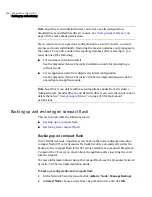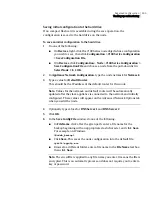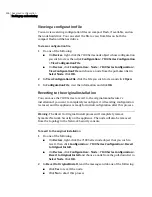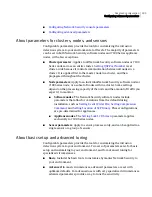Summary of Contents for 10521146 - Network Security 7120
Page 1: ...Symantec Network Security Administration Guide...
Page 12: ...12 Contents Index...
Page 14: ...14...
Page 70: ...70...
Page 110: ...110 Populating the topology database Adding nodes and objects...
Page 158: ...158 Responding Managing flow alert rules...
Page 188: ...188...
Page 242: ...242 Reporting Playing recorded traffic...
Page 268: ...268 Managing log files Exporting data...
Page 316: ...316 Advanced configuration Configuring advanced parameters...
Page 318: ...318...
Page 338: ...338 SQL reference Using MySQL tables...
Page 366: ...366 Glossary...
Page 392: ...392 Index...






































